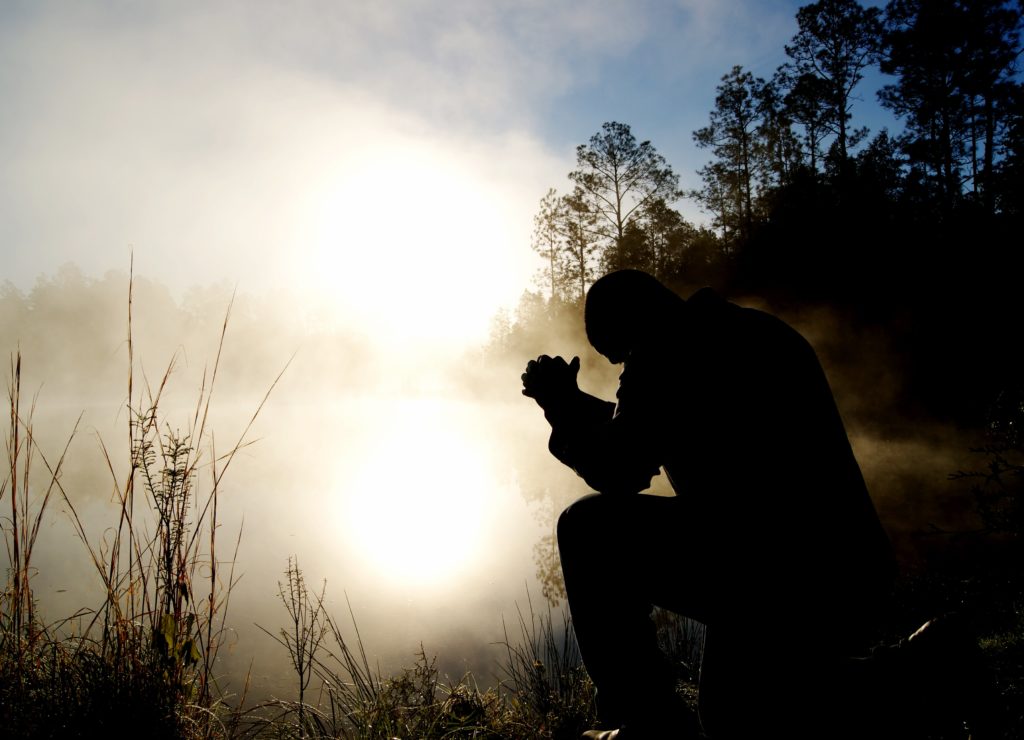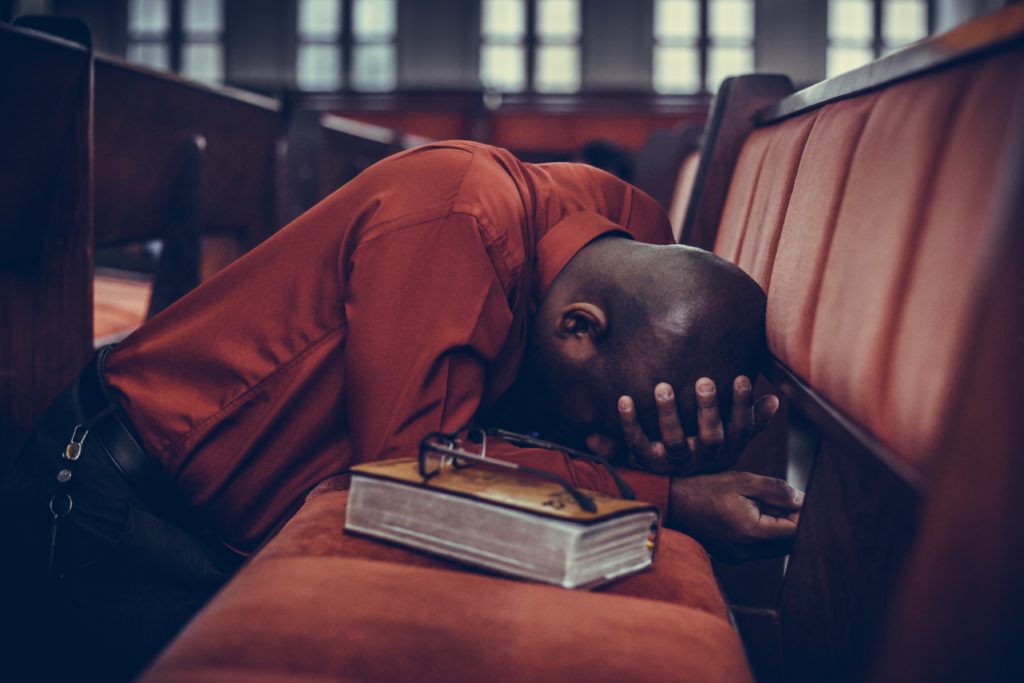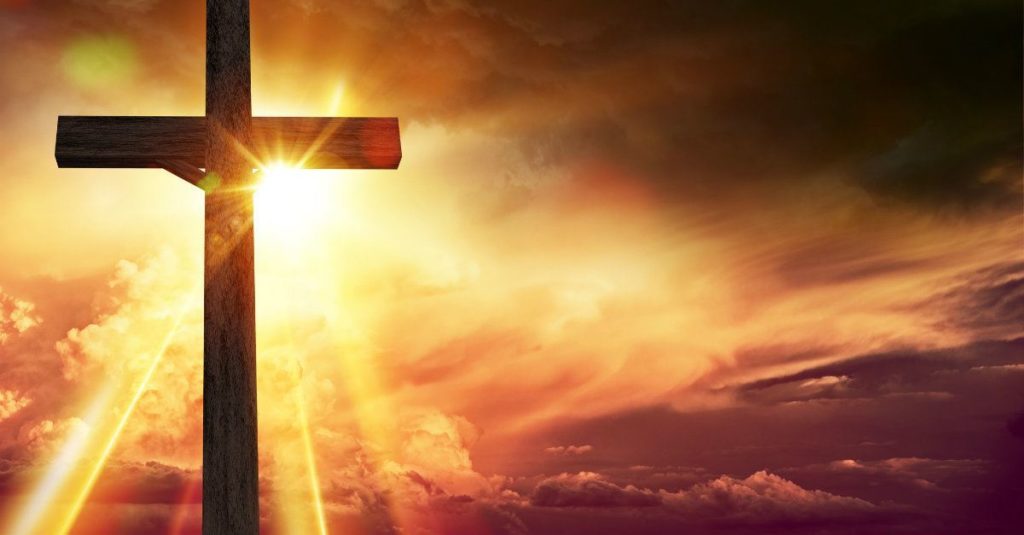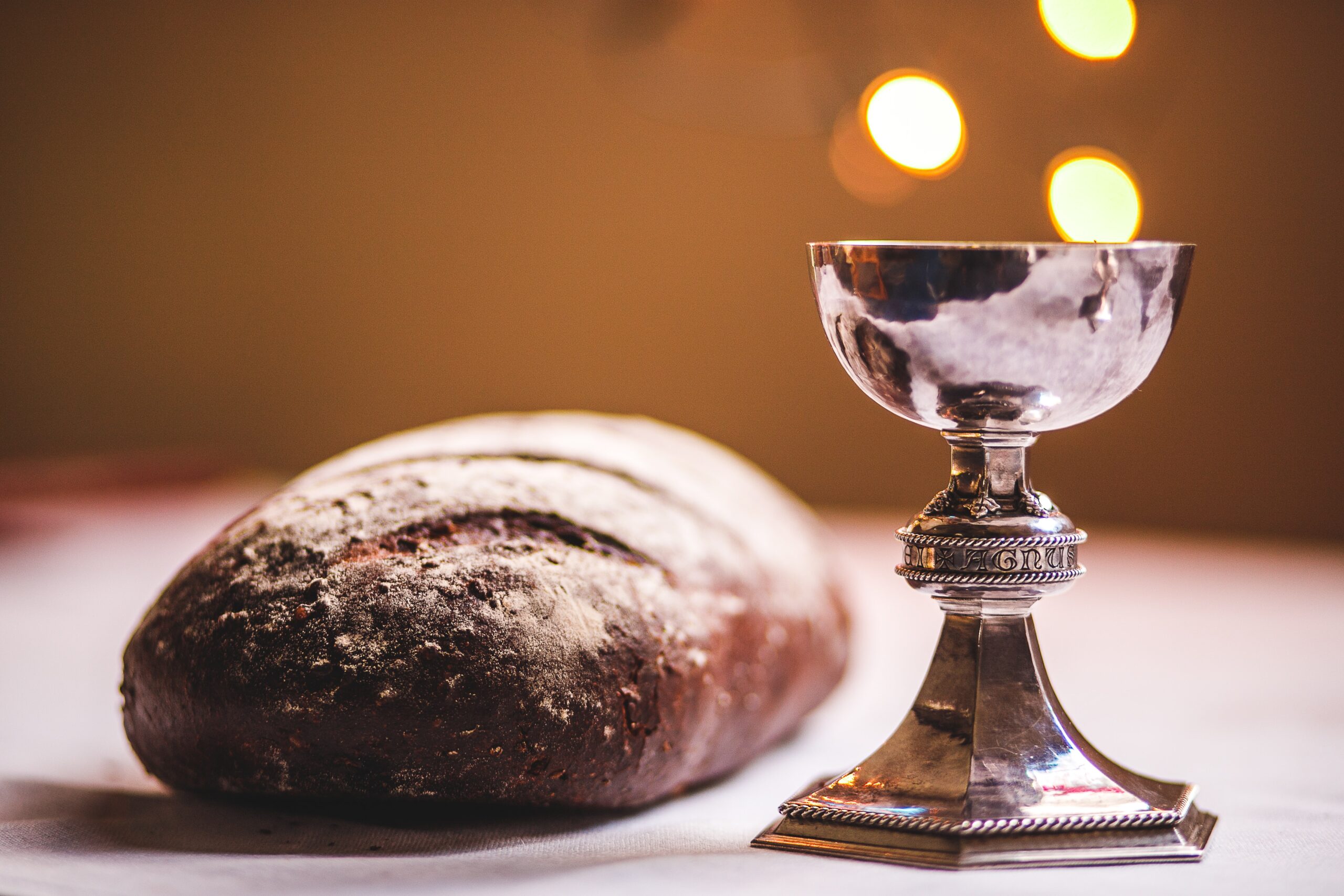Introduction
The last time I wrote on the topic of Coronavirus, there were 96,955 total cases, 39,664 active cases, and 3310 deaths. At the time of publishing this article, there are 1,007,436 total cases, 745,142 active cases, and 51,712 deaths. In less than a month, the virus has caused more damage across the world. Many states across the globe are issuing shelter in place or stay at home orders to protect their citizens. Churches and companies are closing their doors. Many people are now embracing a new way of life. Some economies are already suffering from the lockdown and its effects on productive activities.
Another consequence of the virus is the level of panic and fear that has gripped many individuals and political leaders. When you face a challenge of this magnitude, sometimes panic and anxiety gets the better of us, and we make decisions that we should not. It is all part of the damage.
As believers, our responsibility to live the Christian life does not change when a crisis hits. We must look to God and his word in times of peace and in times of trouble. We must not cast our Bibles aside and bury our heads in lament, speculations, panic, rumor-mongering, and indifference. We must go to God’s word and ask, “How should we live amid the Coronavirus?”
I offer ten thoughts from the scriptures.
Staying Safe
In Leviticus 13 and 14, God gave guidelines to Moses and Aaron on how to deal with infectious skin diseases. Aaron, the priest, was to examine people who show symptoms of leprosy. If the hair in the sore was white and the sore is more than a skin deep, it is a case of leprosy, and he must declare the person ceremonially unclean (13:1-3). If the spot is white, but it is not more than a skin deep, and the hair on the sore is not white, the man or woman will be in isolation for seven days. On the seventh day, there will be another test. If nothing has changed, there will be another seven days of isolation and another check on the seventh day.
God then gave them many laws on how to deal with cases of leprosy to protect the general populace. My point here is that we have a responsibility to stay safe. God did not miraculously heal the person with leprosy. Instead, he gave the people guidelines on how to stay safe so that the disease does not spread.
As believers, we believe in God’s promises of protection. Also, we know that God works through ordinary means. Part of the ordinary means God uses at this time is our adherence to safety guidelines. Every good and perfect gift comes from above, including the gift of medical doctors and public health specialists.

Loving our Neighbors
“Do nothing out of selfish ambition or vain conceit, but in humility, consider others better than yourselves. Each of you should look not only to your own interests, but also to the interests of others.” (Philippians 2:3, 4)
In times like this, it is easy to be self-absorbed, thinking about our security and needs. However, when the Bible tells us to look out for the interests of others, there is no qualification. As we think about all the impacts of the pandemic on our lives, let us do well to think about our neighbors. You might think sleeping for hours on your couch doing nothing is your greatest problem, but someone close to you does not know what his family will eat. While you are stocking food for the period you will be staying at home; many are only hoping that the government will send them a check. My point is, let us not be too consumed about our needs forgetting the needs of others around us. As much as it lies within our capacity, let us reach out to others.
Preaching the Gospel
If the Coronavirus teaches us anything, it is that humans are afraid of death. We all know we are going to die. However, the knowledge of that reality does not take away the fear of death. The devil holds us in slavery by our fear of death (Hebrews 2:14-15). Death became a part of this creation only because of sin (Romans 3:23). God created us to live forever in his presence. Death is an intrusion. It is an enemy. (1 Corinthians 15:26) No wonder we find it hard to live with the fact that we are all going to die. Coronavirus exposes the reality we may be quick to deny- we are afraid of dying. We fear death because we know deep within us that we are guilty, and there is a righteous judgment that awaits us. The sting of sin is death, and the power of sin is the law (1 Corinthians 15:56)
However, for us who are believers, God has freed us from the fear of death (Hebrews 2:15). He does it through Christ. Christ has already defeated the one who has the power of death (Hebrews 2:14). Christ died, and he defeated death when he rose again the third day to live forever. The resurrected Lord has the key of Death and Hades (Revelation 1:8).
Christ rose as the firstborn from the dead (Colossians 1:18) and the first fruits of all those who die in him (1 Corinthians 15:20, 23). Because we are in Christ, we will rise from the dead just as he rose from the dead. Death does not have the final say over us. Paul taught us that death is gain because to be absent from the body is to be present with the Lord (Philippians 1:21, 2 Corinthians 5:6, 8). When we die, we will go and be with the Lord. However, even this is not the full realization of our hope.
We look forward to the resurrection of the body (Philippians 3:20, 21) when our glorified spirits unite with our resurrected body, and we will forever be with the Lord.
It is this gospel that our world needs as we all face this pandemic. Let us tell them that a Savior has died for their sins. If they come to him in repentance and faith, he will forgive them of all their sins and cleanse them from all unrighteousness (1 John 1:9). He will take away their condemnation and the wrath of God that is due them. He will justify them and bring them to the family of God as adopted children. Together with us, they will have firm hope in the gospel. Their fear of death will be gone because the Christ in whom they now trust has defeated death. When they look to the judgment, they can be confident that they have an advocate before the Father, Jesus Christ the righteous (1 John 2:1), and there is no condemnation for those who are in him (Romans 8:1). What awaits them on the other side is glory (Romans 8:18).
If the world condemns us for using such a time to preach the gospel, let us point them to our Lord who, when he was told about the death of the Galileans at the hand of Herod, called the people to repent less they likewise perish. If they reject this gospel, Coronavirus is the least of their worries. There is eternal condemnation for those who reject Christ. If it takes the fear and panic of Coronavirus to get someone to think about his or her stand with God, then we should thank God for such opportunities. Did he not tell us to give thanks in everything (1 Thessalonians 5:18)? That command does not exclude pandemics.
Repenting of our Sins
In Luke 13, people came to Jesus, telling him about the Galileans that Pilate murdered. “Jesus answered, “Do you think that these Galileans were worse sinners than all the other Galileans because they suffered this way? I tell you no! But unless you repent, you too will all perish.” (Luke 13:1-3)
Death is the end of every man. However, the Bible insists that there is a second death. When calamities strike and people die, it should cause us to have sober reflection on the second death. Jesus expected that the calamity of the Galileans would awaken others to their conditions. When they see such destruction, they should evaluate the condition of their soul and repent.
Similarly, when calamities like the Coronavirus strike, it should call us to watch our souls, repent of our sins, and settle account with God. If unbelievers think physical death is so grievous, they should think about the second death. Consequently, any calamity we see should remind us of the worse calamities that are ahead for the sinners and the need for them to repent of their sins.
However, even as believers, we must not live in lethargy. We do not call people to repent while we live in sin. It is also a call for us to repent of our sins and live lives that are worthy of the gospel. (Philippians 1:27)

Trusting in God
“Some trust in Chariots and some in horses, but we trust in the name of the Lord our God” (Psalms 20:7)
We trust God for our protection. We know he uses means, but we know the God who is behind the means. The world focuses on the means to the exclusion of the God who gives all good gifts. However, for us who know God, we focus on the God of the means, the giver of all good gifts (James 1:17). We trust God for our protection. However, we must do more than trust God for our protection (and that of our friends and family). We must trust Him for the end of the COVID-19. We trust him for treatment, and we trust him for a vaccine.
God created this world, and he sustains it. Even though the world is in opposition to God, he is full of mercy, longsuffering, and compassion. We must trust him to put an end to this virus.
How do we express our trust in God? We do it through our prayers and by avoiding anxiety. Anxiety is a pointer to the doubt buried in our hearts. We should not be anxious about our lives (Mathew 6:25). Another thing we will have to trust God for is provision. If we live in places where the economy is in shambles, we should trust God for our daily bread. God provides for us, and he uses means. If our trust is in our means, we will be anxious because of the close of businesses. However, if we serve a God who is not limited to a particular means, we can trust God for provision even when our shops are closed.
Living without Despair
In the previous article, this was the major point. We are believers, and we must never live in despair. Let me just quote directly from that article:
“How can believers live amid Coronavirus and not despair? It is because the God we worship is sovereign over everything in heaven and on earth (1 Chronicles 29:11-12, Psalms 103:19). Nothing (including Coronavirus) happens outside of his knowledge, will, and purpose (Proverbs 16:4, Ecclesiastes 7:13-14, Isaiah 14:24)). God does not just know the end from the beginning; he ordains the end from the beginning (Isaiah 46:9-10). God does not just know everything that happens; nothing happens outside of his divine will (Lamentations 3:37). Since nothing happens outside of his divine will, nothing happens outside of his divine purposes. (Proverbs 16:4). No sparrow falls to the ground apart from our Father’s will. (Mathew 10:29)
We do not despair not just because God protects us, but because of the kind of God who protects us. He is the sovereign God who rules over Coronavirus (Isaiah 45:7, Ecclesiastes 7:14).”
It is God we must fear not viruses. Those who fear God will not fear men or things that are less than men (like viruses).

Preparing for the Future
Coronavirus will pass, and life will return to normal. When life returns to normal, will it find us better people? Will we invest the time this affords us to become better Christians, employees, entrepreneurs, freelancers, parents, children, and students, etc.? Alternatively, are we going to waste the precious time God in his mercy gave us in idleness, panic, despair, and constantly chasing after the wind? We must be wise stewards of God’s resources (including time) in good and bad times.
Rather than allow this time slide by, do something that will prepare you for the future after Coronavirus.
Hoping in the Gospel
In all of these, we must not forget the hope of the gospel. This world is fallen. God, as a judgment against our sins, subjected this creation to frustration (Romans 8:20). Coronavirus and every other suffering and evil are products of the fallenness of creation. As long as we live in this fallen world, suffering and evil will not cease.
However, the hope of the gospel is that this world will not last forever. The creation will be liberated from its bondage to decay (Romans 8:21). God will destroy this present evil world (2 Peter 3:12). “But in keeping with his promise we are looking forward to a new heaven and a new earth, the home of righteousness” (verse 13). In this new heaven and new earth, there will be no stain of evil. “There will be no more death or mourning or crying or pain, for the old order of things has passed away” (Revelation 21:4)
When we suffer in this world, our sufferings must point us to the hope before us – the eternal glory that far outweighs them all. Whether it is Coronavirus or Cancer, need or loss, tsunamis or earthquakes, we must fix our gaze on the hope before us. This fallen world hurts, but this fallen world will not last. It is the new heavens and earth that will last forever. There we must fix our hope.

Forsaking False Theologies
In times like these, we will be confronted with many false teachings about God. Some will tell us that the Bible has no answers to all that is happening. Many will say to us that God has nothing to do with it, and he is at the mercy of Satan. Some will say to us that God did not know there would be a Coronavirus. There will also be those who will insist that there is no hope beyond the grave.
False theologies come in different shades. In times like these, we must reject every false teaching about God.
Embracing Sound Theologies
Does the Bible have answers to all of these?
Only the Bible has answers to all of these. Only the Bible has answers to anything and everything. It tells us why there is evil and suffering in the world. It tells us how the world will end. It reveals the gospel that is the only hope for the human race.
Does God have anything to do with all of these?
“I form the light and create darkness; I bring prosperity and create disaster: I, the Lord, do all these things.” (Isaiah 45:7)
“When a trumpet sounds in a city, do not the people tremble? When disaster comes to a city, has not the Lord caused it?” (Amos 3:6)
“Who can speak and have it happen if the Lord has not decreed it? Is it not from the mouth of the Most High that both calamities and good things come?” (Lamentations 3:37, 38)
God is not the source of evil; sin is. God puts the world under judgment because of our sins. His judgments against sin are not evil; they are good. None of us wants to live in an unjust world. God is just, and he judges sin. Sin is the cause of evil and suffering. However, it is God who puts the world under the judgment of sin. In doing that, he is holy and righteous.
Did God know there would be a Coronavirus?
“Declare what is to be, present it—let them take counsel together. Who foretold this long ago, who declared it from the distant past? Was it not I, the Lord? And there is no God apart from me, a righteous God and a Savior; there is none but me.” (Isaiah 45:21)
“I make known the end from the beginning, from ancient times, what is still to come. I say: My purpose will stand, and I will do all that I please.” (Isaiah 46:10)
God knows the end from the beginning precisely because he ordains the end from the beginning.
Is there hope beyond the grave?
The whole point of 1 Corinthians 15:12-34 is that our hope beyond the grave is closely tied to the resurrection of Jesus. Because Jesus was raised sometimes two thousand years ago, there is a hope beyond the grave.
Conclusion
Irrespective of the circumstances of the day, we must live lives that are faithful to God and his word. God’s calling on our lives does not change in crises. Let us trust God and receive from him the grace to live faithfully even amid the Coronavirus.



